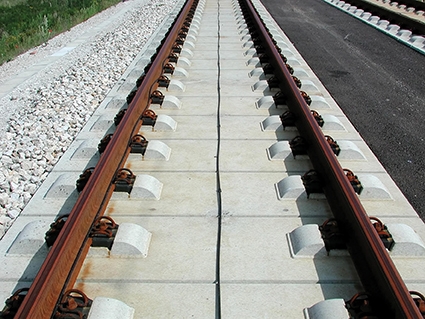Runaway Train
OP-ED
For nothing is hidden that which will not be made manifest, nor is anything secret that will not be known and brought to light- Luke 8:17. This excerpt applies well to the recent meeting held in Prague between Russia's Deputy Foreign Minister Grigory Karasin and Zurab Abashidze, the special representative of the Georgian Prime Minister. Both Karasin and Abashidze tried to convince media at the Diplomat Hotel that it was an ordinary meeting and that the parties had discussed nothing special. However, twenty days after the meeting it turned out that they had been discussing the renewal of a railway, to pass through the territory of occupied Abkhazia.
Karen Karapetyan, the Prime Minister of Armenia, acted as the author of “the Gospel of Luke” this time. Upon his return from a visit to Tbilisi, he told a journalist who asked about the railway issue as discussed during the Karasin-Abashidze meeting, “If you are interested in whether an alternative to Larsi will emerge, I assure you that yes, it will.” The Armenian Prime Minister further added, “For now, I won’t open the parenthesis completely. We negotiated Larsi and also the energy corridor.”
After the head of Armenian government disclosed the secret of the meetings in Prague and Tbilisi, the local analytical circles started talking about possible collaboration from the Georgian government. “Our Ministry of Foreign Affairs is so closed, it is starting to resemble a Masonic Lodge,” said political analyst Soso Tsintsadze. “The Armenian premier said they talked about transport, but shouldn’t [the ministry] tell us? Every new unanswered question is followed by dumb answers from Parliament. The people giving us the answers are not the real decision-makers about the issue of renewal of the Russian-Armenian railway.”
During his visit to Armenia in January 2013, Prime Minister of the time, Bidzina Ivanishvili, declared that it was possible to open a path that would connect Russia with Armenia, passing through Georgia and the occupied Abkhazian territory. He said that if all parties reached agreement, the railway could be opened. This issue has been raised a number of times since, but our government has denied the Georgian opposition is accusing the government of acting against the interests of our country and behind the backs of the citizens, also demanding they make the ongoing negotiations with Armenia public. “We cannot get into deals with separatists and grant them legitimacy; even this agreement about the Abkhazian section can mean questioning the non-recognition policy, which in fact is our prime weapon at the moment,” said Nikoloz Rurua, member of the United National Movement.
The negotiations held on February 8, as well as the discussions held in Prague over the corridors, were also addressed by the Armenian media and experts. They believe that Tskhinvali region can serve as an alternative to Upper Larsi, because the only official point connecting Russia and Georgia at the moment is Larsi, which is quite often closed due to severe climate conditions.
The issue of negotiations was protested by the heads of occupied South Ossetia. The announcement by the de-facto government read that Tskhinvali was not considered party to the agreement and therefore the practical implementation of the document was questionable. Armenia has issued announcements about the creation of an alternative to Larsi a number of times. In his interview with Sputnik Armenia about a month ago, the Minister of Transport of Armenia, Vahan Martirosyan, said that Armenia is looking for alternative ways to transport goods to Russia and that they consider doing so through “South Ossetia:” “We are conducting intensive negotiations with Russia and Georgia about ‘South Ossetia.’ We are trying our best to have the parties reach an agreement on the issue,” Martirosyan declared.
Zaza Jgarkava












